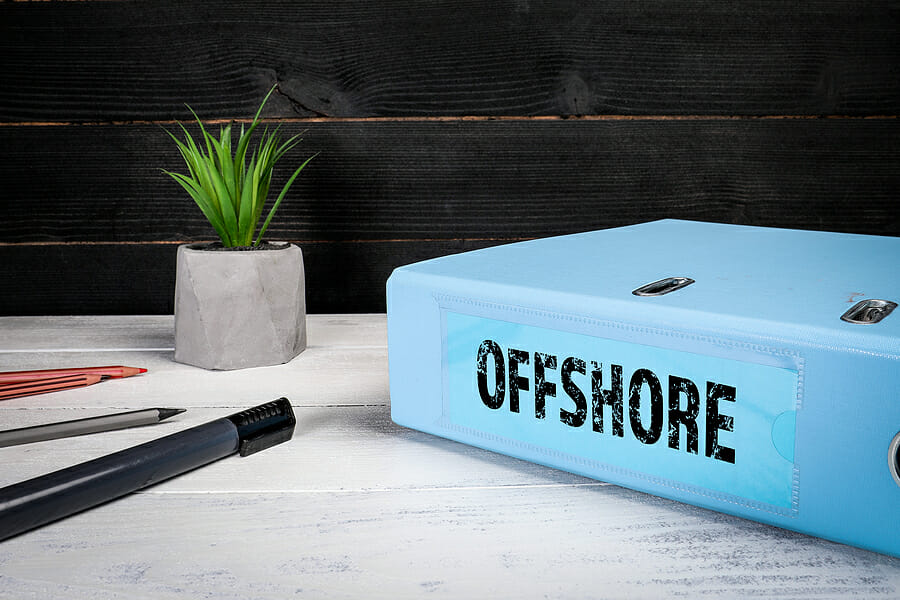There are lots of companies that have been set up offshore in order to avoid paying taxes. If you use an offshore company, however, it is important to be aware of what options you have and how they can benefit your business. This article will explain the Top 8 Best-Kept Secrets About Offshore Companies.
What is a readymade offshore company?
A readymade offshore company is a type of offshore company that has been professionally set up and registered with the authorities. They are perfect for individuals or businesses who want to set up an offshore company but don’t have the time or knowledge to do it themselves. A readymade offshore company can save you a lot of time and hassle, and they’re usually very affordable too.
To find a readymade offshore company, you first need to identify your needs. Are you looking for a low-cost way to set up an offshore company? Or do you want a more professional setup with more features? Once you’ve identified your needs, you can start searching online or offshore ready-made companies directly.
When choosing a readymade offshore company, be sure to consider the following factors:
- Company type: There are three main types of readymade offshore companies: PSCs (permanent establishment companies), OPs (offshore partnerships), and SOPs (special purpose entities). Each has its own set of benefits and drawbacks, so it’s important to choose the right one for your needs.
- Registration process: Make sure the company you’re considering has already been registered with the appropriate authorities, otherwise you’ll have to go through the registration process yourself. This can take some time and money, so be sure to check this before signing up.
- Services offered: Some companies offer just basic services such as filing paperwork and setting up accounts, while others offer
Why start an offshore company?
Starting an offshore company can be a great way to protect your assets and increase your financial security. Here are some reasons to consider setting up an offshore company:
- Tax benefits. Offshore companies offer tax advantages that can make them more advantageous than traditional businesses in many cases. For example, offshore companies are often able to reduce their tax burden by using foreign accounts or by earning income outside of the country where they are located.
- Privacy and safety. With an set up offshore company, you can keep your personal information private and safe from prying eyes. You also have the peace of mind that your business will not be subject to government seizures or nationalization without your consent.
- Political stability and freedom of speech. Many countries don’t have strong-enough legal systems to protect the rights of business owners, which can make starting an offshore company a preferable option for people who want to avoid political persecution or censorship. In addition, certain countries – such as Panama – have a relatively low level of crime and provide excellent safety conditions for businesspeople.
- Increased mobility and flexibility. By operating an offshore company, you can take advantage of increased mobility and flexibility in your work life – something that is often difficult to do when working in a traditional company structure. This increased mobility can be particularly helpful if you need to take care of family obligations or travel frequently for professional purposes.
How to choose the foreign state?
When it comes to choosing an offshore company, there are a few things to keep in mind. First, what jurisdiction will the company be based in? Offshore companies can be registered in any number of countries, but some offer more favorable tax laws and are therefore more popular.
Second, what type of company will you want to create? There are three main types of offshore companies: PEPs (private enterprise partnerships), LLCs (limited liability companies), and S corps (reporting corporations). Each has its own benefits and drawbacks.
PEPs are the most popular type of offshore company because they’re easy to set up and manage. However, they have lower tax rates than other types of companies. LLCs offer better protection for investors because their owners are liable only for their own personal debts and not those of the company. S corps have the greatest potential for wealth creation because they can elect to pay taxes as a C corporation or as a pass-through entity, which allows their profits to flow through without being taxed at the corporate level.
Finally, consider your business goals. If you just want an offshore structure for tax purposes, then a PEP is probably your best option. If you want to actively participate in your business from abroad but still maintain legal ties to your home country, go with an LLC. If you want full control over your business and don’t mind paying higher taxes, go with a S corp.
The best business models to consider when starting an offshore company
- Choose the right jurisdiction. There are many offshore jurisdictions available, with different tax systems and business regulations. Make sure you select a jurisdiction that is suited to your company’s needs and meets your business goals.
- Register your company in the correct jurisdiction. The process of registering your company can be complex, so it is important to find an offshore registered agent who can help you through the process.
- Do your research. Before starting your offshore company, do your research to determine what type of company structure will work best for you and your business goals. Consider things like ownership structures, taxation laws, and business regulations.
- Plan for compliance. As your business grows, it will become necessary to comply with new regulations and tax laws related to offshore companies. Make sure you have a plan in place to meet these requirements
How do I set up my offshore company?
To start an offshore company, you will need to gather some information about your business and register with the appropriate authorities. You will also need to create a corporate structure and establish operational procedures. Once you have completed these tasks, you can commence trading in your new company.
- Register your company with the relevant authorities
There are several steps that you must take to register your company. These include registering as a foreign company with the Companies House in the United Kingdom or filing Articles of Incorporation with the state authorities in your home country. You will also need to appoint a corporate secretary and file financial accounts.
- Create a corporate structure
You will need to create a corporate structure for your business. This includes designing a formal name for your company and choosing an official domicile (a country where your company is registered). You should also appoint directors and shareholders, set up bank accounts, and update operational procedures.
- Establish operational procedures
You will need to establish operational procedures for your business. This includes setting up policies and rules of conduct, appointing managers, and drafting constitutions and bylaws. You should also create marketing materials, develop sales strategies, and establish customer service protocols.
Image Source: BigStockPhoto.com (Licensed)
Site Disclaimer
The Content in this post and on this site is for informational and entertainment purposes only. You should not construe any such information or other material as legal, tax, investment, financial, or other advice. Nothing contained on our Site constitutes a solicitation, recommendation, endorsement, or offer by HII or any third party service provider to buy or sell any securities or other financial instruments.
Nothing in this post or on this site constitutes professional and/or financial advice. You alone assume the sole responsibility of evaluating the merits and risks associated with the use of any information or other content in this post or on this site.
You recognize that when making investments, an investor may get back less than the amount invested. Information on past performance, where given, is not necessarily a guide to future performance.
Related Categories: Work, Money, Reviews







